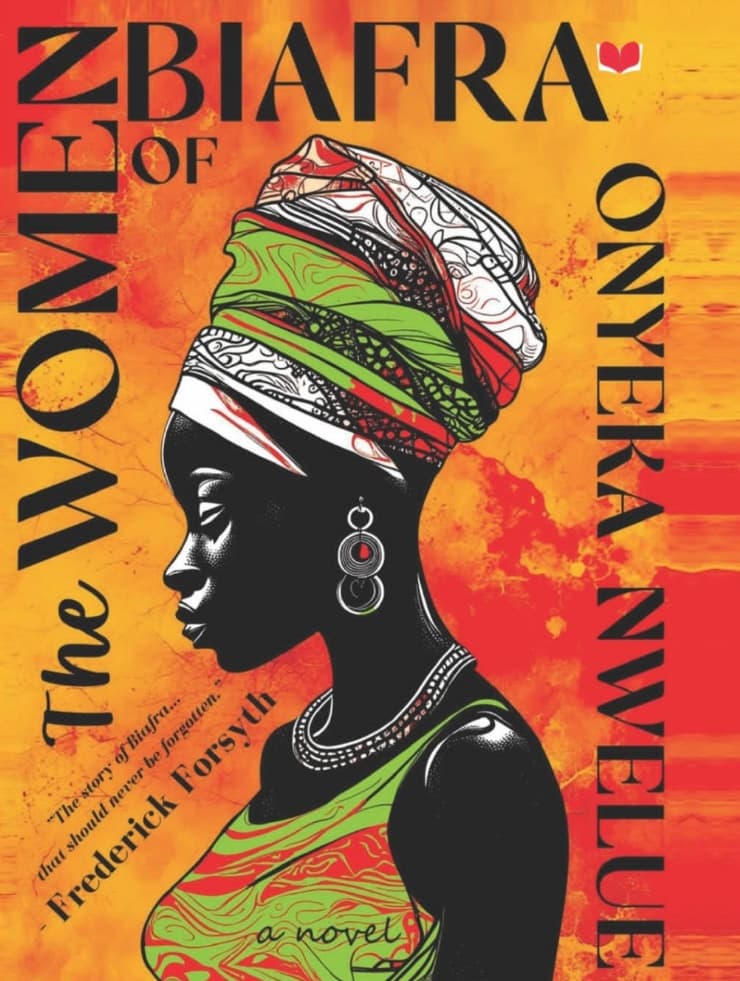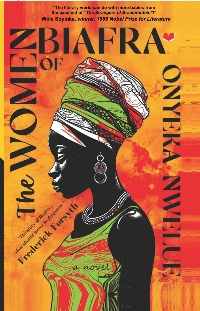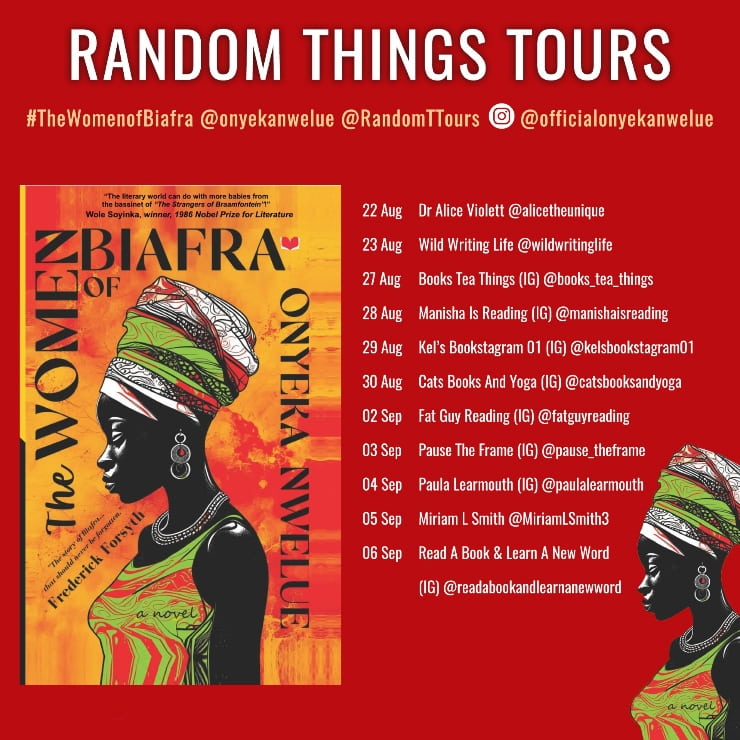Blog tour: The Women of Biafra by Onyeka Nwelue

This post is part of a blog tour organised by Random Things Blog Tours. I received a free copy of the book in return for an honest review.
‘The Women of Biafra is set in 1967 during the tragic genocide against the Biafrans by Nigerian soldiers.
‘The novel follows the harrowing journey of Ngozika, a young Igbo widow who endures unspeakable trauma at the hands of a Fulani man.
‘Her plight takes a turn when Sola Adenubi, a compassionate Yoruba soldier, helps her escape with her twins.’

The Women of Biafra, by Onyeka Nwelue, plunges the reader into the brutality of the Nigerian Civil War in 1967.
In the opening scene, young Biafran widow Ngozika is being violently raped by a Fulani soldier in her own home, but her biggest concern in the moment is the welfare of her 12-year-old daughter Udoka and teenage son Emeka, who are tied up in the next room.
After another, sympathetic enemy soldier intervenes, Ngozika and her children escape by taking a bus to the village of Ogwuma, where Ngozika’s mother and brother live and the three of them will hopefully be safer.
However, events move fast. Ngozika travels back home by herself to get a break from her eccentric mother and take care of some business, but when she gets back to Ogwuma, her brother has been killed and her children have moved on to Umuahia. Naturally, this becomes her next destination.
The Women of Biafra is a short but highly effective novel. Using plain, straightforward language – peppered with some brilliantly evocative similes – Nwelue vividly portrays the atrocities committed against Biafran civilians by Nigerian troops, and one woman’s dogged determination to survive for the sake of her loved ones.
I was particularly struck by the author’s emphasis on the active part Biafran women played in defending their land. As Ngozika proclaims in a rousing speech to fellow widows in her village, with all the men either dead or fighting, it’s down to them to arm themselves and fight back. Later, in Umuahia, she becomes an active combatant herself.
Ngozika’s emotions are in constant flux – sometimes militant, sometimes despondent; sometimes fighting to live, sometimes resigned to dying; sometimes hopeful, sometimes despairing. Three things remain constant, though: her straight-talking, hot-headed manner; her obsession with Ernest Hemingway; and her determination to find and protect her children.
This interpersonal devotion extends to her lifelong best friend, Mama Idu. Quite aside from it always being good to see a positive portrayal of female friendship in fiction, the interactions between the pair add a touch of levity to the story.
In theory, they’re an odd couple – Mama Idu cheerfully describes herself as cowardly (though this belies her remarkable resilience in the face of devastating, senseless loss) and unintellectual – but they complement one another and often laugh together. While they’re running on adrenaline and have to keep moving, the effects of their trauma are on hold, but no doubt they would have each other’s backs when it finally had time to hit.
While this story features a number of graphic and brutal scenes and a heartbreaking climax, these are needed to communicate the reality of a major humanitarian crisis. Also worth mentioning is the British government’s support for Nigeria, which was at odds with the sympathies of the public and prominent, influential figures such as Frederick Forsyth.
The Women of Biafra is vivid, striking, and necessarily brutal.
